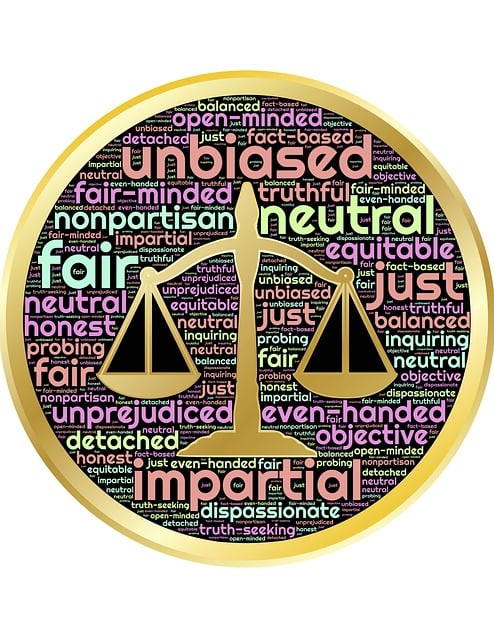Securities class actions empower investors to combat fraud through collective legal efforts, with Administrative Law Judges (ALJs) playing a pivotal role in dispute resolution. Appealing ALJ decisions is crucial for achieving justice, as these appeals address legal and factual errors in high-stakes cases involving complex financial matters. Strategic factors like meticulous detail, understanding financial regulations, and compelling narratives are key to successful appeals, which can lead to new trials, settlements, or the reinforcement of initial judgments, ultimately protecting business interests and ensuring remedies for investors while fostering accountability within the financial sector.
Securities class actions are powerful legal tools, enabling investors to seek redress for widespread securities violations. This article delves into the intricacies of these complex cases, focusing on a critical component: appealing Administrative Law Judge (ALJ) decisions. We explore key considerations and best practices when navigating appeals, highlighting common grounds for success or rejection. Understanding the role of ALJs and their impact on case outcomes is essential for investors and legal professionals alike, especially in light of the potential consequences of these high-stakes disputes.
- Understanding Securities Class Actions: An Overview
- The Role of Administrative Law Judges in Class Action Suits
- Key Considerations When Appealing ALJ Decisions
- Common Grounds for Appealing and Potential Outcomes
- Best Practices for Effective Appeals in Securities Cases
Understanding Securities Class Actions: An Overview

Securities Class Actions involve collective legal proceedings where investors join forces to hold accountable parties responsible for securities fraud or misconduct. This legal mechanism is a powerful tool for justice, allowing affected individuals to seek compensation collectively rather than individually. By banding together, investors can pool resources and expertise, making it more feasible to challenge sophisticated financial crimes. These actions encompass various violations, from misrepresenting financial statements to engaging in insider trading, targeting both public companies and individuals.
Understanding the intricacies of these cases is crucial for navigating the legal landscape. The process involves multiple stages, including filing a complaint, discovery, and potential settlement negotiations or trials. Appealing Administrative Law Judge Decisions plays a pivotal role, as these decisions can significantly impact the outcome. Engaging experienced legal counsel specializing in securities law is essential throughout all stages of the investigative and enforcement process. This ensures that investors’ rights are protected and their voices heard, fostering accountability within the financial sector and strengthening the integrity of philanthropic and political communities.
The Role of Administrative Law Judges in Class Action Suits

In securities class action suits, Administrative Law Judges (ALJs) play a pivotal role in adjudicating disputes and making critical decisions that impact a large number of investors. These judges are responsible for conducting hearings, evaluating evidence, and rendering decisions that can shape the outcomes for both corporate and individual clients. Their expertise lies in navigating complex legal issues and applying relevant laws to specific cases, ensuring fairness and justice for all parties involved.
Appealing ALJ decisions is a crucial aspect of these lawsuits, especially when complex financial matters are at stake. Investors and companies alike may challenge rulings, aiming for winning challenging defense verdicts or securing favorable outcomes that reflect an unprecedented track record. This appeals process underscores the importance of robust administrative law in the securities litigation landscape.
Key Considerations When Appealing ALJ Decisions

When considering an appeal of Administrative Law Judge (ALJ) decisions in securities class actions, several strategic factors come into play. Given the complexity and high-stakes nature of these cases, achieving extraordinary results often hinges on meticulous attention to detail. Legal teams must thoroughly review the ALJ’s reasoning, identifying any procedural or legal errors that could sway the outcome. This involves a nuanced understanding of financial regulations and a deep dive into the specifics of the case.
A successful appeal strategy also encompasses crafting a compelling narrative that highlights the potential impact on affected investors. By presenting a strong argument centered around correcting miscarriages of justice, attorneys can navigate these high-stakes cases effectively. Moreover, focusing on avoiding indictment—a common concern in securities disputes—can further strengthen the appeal, demonstrating a commitment to fairness and due process.
Common Grounds for Appealing and Potential Outcomes

In securities class actions, common grounds for appealing an Administrative Law Judge’s decision often center around legal errors, evidentiary insufficiencies, or procedural unfairness. Plaintiffs may challenge the judge’s interpretation of the law governing securities fraud, arguing that the ruling failed to consider relevant precedents or misapplied the law to the facts presented. Similarly, defendants might appeal if they believe the evidence was misinterpreted or that their due process rights were violated during the proceedings.
The potential outcomes of these appeals vary widely. If the appellate body agrees with the plaintiff’s arguments, it could overturn the original decision, leading to a new trial or settlement negotiations. In contrast, an appellate court might affirm the Administrative Law Judge’s ruling, confirming that the initial determination was sound and just. Ultimately, the outcome depends on the strength of the legal arguments presented and the persuasive power of any additional evidence offered during the appeal process, affecting not only the respective business interests involved but also the broader philanthropic and political communities impacted by the case.
Best Practices for Effective Appeals in Securities Cases

In navigating the complex landscape of securities law, effective appeals are paramount for achieving justice in high-stakes cases across the country. When facing decisions by Administrative Law Judges (ALJs), investors and businesses alike must employ best practices to ensure robust and fair outcomes. A strategic approach begins with meticulous review of the ALJ’s decision, identifying any legal or factual errors that warrant appeal.
Preparatory steps include gathering comprehensive evidence, refining legal arguments, and ensuring compliance with procedural requirements. Engaging experienced counsel specializing in securities appeals is crucial for navigating the intricacies of administrative law. This collaborative effort enhances the chances of success, ultimately protecting the respective business interests and securing remedies for harmed investors.
Securities class actions, driven by complex legal landscapes and high-stakes outcomes, require meticulous navigation. Understanding the role of Administrative Law Judges (ALJs) and employing strategic appeals is crucial for achieving justice. When considering an appeal of ALJ decisions, understanding common grounds, potential outcomes, and best practices ensures a robust defense or prosecution. Armed with this knowledge, participants in securities class actions can navigate the process effectively, ultimately contributing to a fair and efficient resolution.






